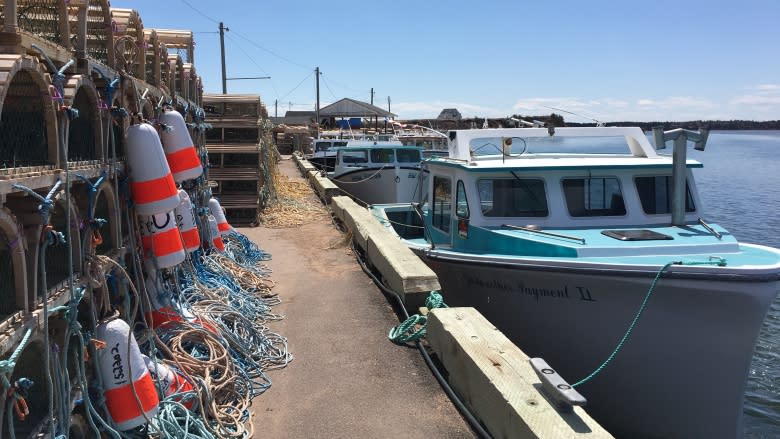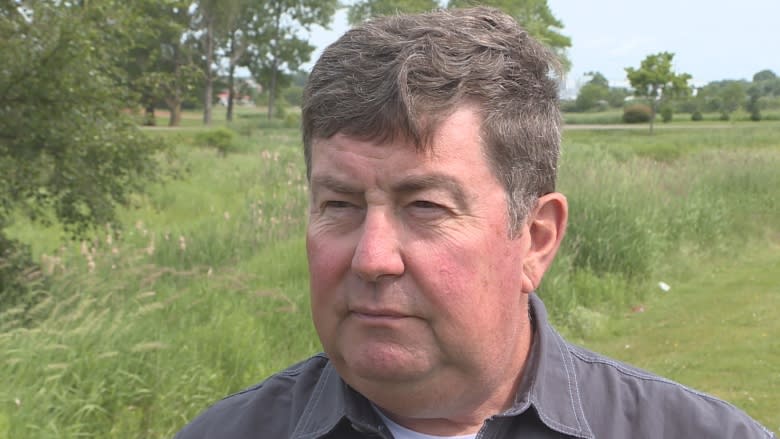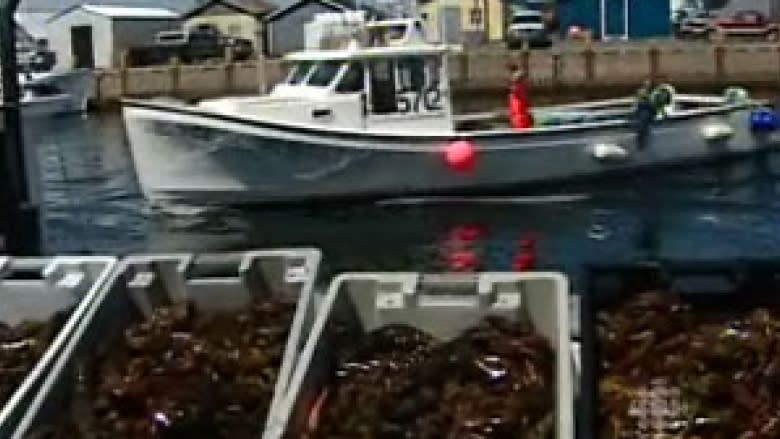P.E.I. lobster fishery: use less mackerel as bait, or risk eco-friendly stamp
P.E.I. lobster fishermen will have to prove they're using less mackerel for bait if they're going to keep their eco-friendly certification.
The Island lobster fishery achieved Marine Stewardship Council certification in November 2014. Yearly audits are done to make sure the fishery continues to be ecologically sustainable, while the council encourages consumers to purchase sustainably-caught fish with special branding — a little blue logo incorporating a check mark and a fish.
To keep that certification, MSC auditors have asked the fishery to meet five conditions — two of which involve reducing the use of mackerel for bait.
That will be a challenge given how popular mackerel is, said the P.E.I. Fishermen's Association, while noting protecting these fish is also important.
Mackerel popular bait on P.E.I.
"It's certainly one of the main baits here on P.E.I.," said the association's executive director Ian MacPherson. He isn't sure what percentage of Island fishermen prefer mackerel over herring, the other common bait.
"Definitely those are the preferred baits for most of the fishers on P.E.I. and so obviously they want to continue to use those baits. They have good success, and so we want to work to make those stocks healthy."
The MSC requirement to reduce the use of mackerel was added last year, after the most recent mackerel stock assessment by Fisheries and Oceans Canada raised some concerns. In 2015, Canada saw the lowest mackerel landings in years — fishermen caught less than half of the quota.
MSC has set the same condition to reduce mackerel use for lobster fisheries in Nova Scotia and New Brunswick, so fishing associations in all three provinces have formed a working group to tackle the issue.
This year, the amount of mackerel bait being used in the region is being tracked — that information will help the associations set a reduction target with MSC officials.
'Lobster is a discerning consumer'
Work will also have to be done to come up with alternatives, MacPherson said.
"Lobster is a discerning consumer and won't just eat anything, so it will be a matter of some experimentation."
Homarus Inc., a company associated with the Maritime Fishermen's Union in New Brunswick, is working on a bait alternative but a company official told CBC News they aren't willing to make the details public until fall at the earliest.
Fishermen in P.E.I. will have to show improvements in the mackerel target by 2018 — one year before recertification — or the fishery risks losing its MSC stamp of approval, something the PEIFA doesn't want to see happen.
"It's very important for us here in P.E.I. We have a lot of markets in Europe, and although we're just starting to see it more and more here in North America, it's huge over in Europe," said MacPherson. He said more grocery chains now require eco-certification for a product to be carried.
"It's a big marketing tool for sure."
- MORE P.E.I. NEWS I
- MORE P.E.I. NEWS I
Correction : A previous version of this story incorrectly stated the P.E.I. fishery was the first to get MSC certification. In fact, Îles de la Madeleine received the certification in 2013.(Jun 29, 2016 8:11 AM)




